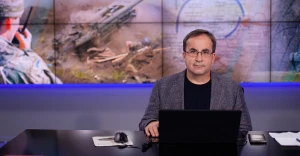
EU imports 13.7 billion euros worth of crucial raw materials from Russia – investigation
Since the full-scale invasion began in February 2022, the EU continued to import vital raw materials, such as titanium and nickel, from Russia, totaling 13.7 billion euros
This information comes from a report by the Investigate Europe portal, which analyzed data from Eurostat and the European Commission Joint Research Center, European Pravda reports.
In its sanctions package against Russia, the EU included exemptions for 34 types of raw materials considered "critically important." These materials are irreplaceable due to their speed, pricing, or scarcity.
These resources are crucial for various industries, including electronics, solar panels, electric cars, aerospace, and defense, making the EU heavily reliant on them.
According to Investigate Europe's analysis, from March 2022 to July 2023, the EU imported 13.7 billion euros worth of such raw materials from Russia. From January to July 2023, the supplies amounted to more than 3.7 billion euros.
These funds not only benefit the Russian Federation's budget but also companies affiliated with the Kremlin.
- For example, the world's largest titanium producer, VSPMO-Avisma, linked to Putin-associated oligarch Chemezov, received at least $308 million during this period. Airbus was mentioned as one of the buyers of VSPMO-Avisma.
- During the same period, Nornickel, a leading producer of palladium and high-grade nickel, exported nickel and copper worth $7.6 billion and palladium, platinum, and rhodium worth over $3 billion to the EU. Surprisingly, the EU did not impose sanctions on Nornickel.
- Russian aluminum giant Rusal, which owns the largest alumina plant in Ireland and a metallurgical plant in Sweden, imported at least $2.6 billion worth of aluminum into the EU in the 16 months following the full-scale invasion of Ukraine.
Recognizing the problem, the EU is actively seeking ways to reduce its dependence on Russia's critical mineral resources.
- On October 23, the ministers of the EU and Central Asian countries expressed their willingness to both strengthen sanctions against Russia and find ways to circumvent them.
- News














































